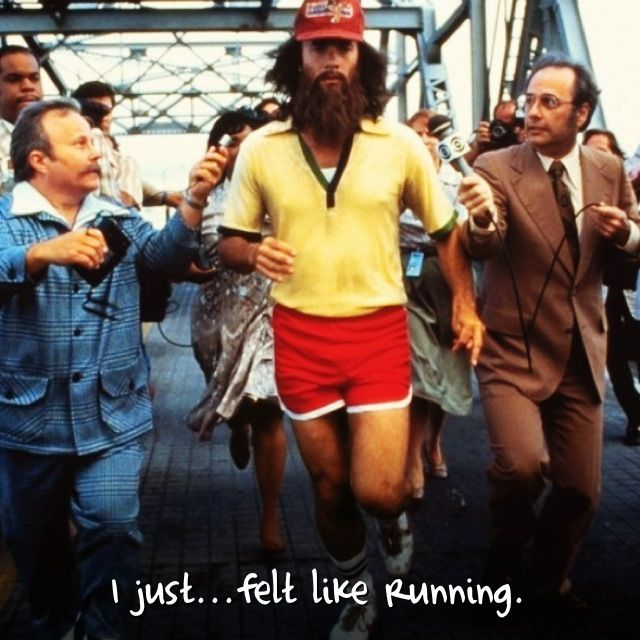It’s Not My Fault If You Choose To Follow My Husband’s Advice
Issue #5
Training Plans Are Dumb
A long time ago I was running a 100-miler, Rocky Raccoon, for my third time. Some university was doing a study and we could volunteer to be a part of it. They sent us some questions pre-race and videoed us running by the spot where they set up camp for two days. This spot was of course where you needed to run because you didn’t want to be the one they all secretly laughed at when they rewatched the films- “Hey look at this guy walking...again!” But the point of this is one of the pre-race questions they asked: “What do you do for training?” And that got me thinking. What do I do for training?

To me, training involves having a schedule of things you need to do beyond just going out and running. Monday- run 20 400s with 30 second walk breaks on the track. Tuesday is long run day- 8 miles at x:xx pace. Wednesday is a 5-mile tempo run- keep pace between x:xx and x:xx. Thursday is weights blah blah blah blah etc. etc. etc. Ever since I was helped into discovering how amazing running long distances is and found out how I could get my body to fairly efficiently do this, I never had a training plan. I just went out and ran. I simply liked running. It didn’t matter how long (as long as it was at least a mile) and it didn’t matter how fast (even if it was walking). I just had to go outside. If I felt good, I might pick up the pace a bit. Or not. If it was hot, let’s slow down so I don’t melt. Sure, I log all my miles, my pace, anyone I ran with, the weather, temperature, which shoes I wore, how I felt, the humidity, the loop- all that’s shown in the table below. (FYI-I almost always feel great. It’s easier to run when you don’t feel bad.) But all that information is for some future study that will need to know how I became the runner that I am. It’s my proof that what I do and say works. I don’t do much with the numbers.

So when I answered the researchers’ question about what I do for training, I replied with “I don’t consider anything I do as training. I just go out and run. If I feel good, I go faster or longer or just keep the same pace. If I feel bad, slow down. When I step out of the house, I think, today I’m gonna run 10 miles cause I feel this. Or I’m gonna just do this small 3 mile loop cause I feel that. Other than getting out of the house and running, I don’t have any other preconceived plan about what I’ll do.” That’s not exactly what I told them, but that’s the spirit of it.
A few other tidbits about my “training.” I run almost exclusively on the road or paved trails. The only time I get on non-paved surfaces is when I race. I live near Houston, and there are quite literally no hills. I might gain/lose 100 feet over 10 miles, and that’s if there’s an overpass I need to go up and over. The only hills/mountains I run on are when I race. My daily running is always done in road shoes. And unless it’s going to be raining, I wear my road shoes for race day too. I carry a watch that I got when I was in junior high so I can track total time while running. But I never look at it while I run until I’m back home and stop the timer. I don’t have a heart rate monitor. I don’t buy new shoes until they have a couple thousand miles on them. I never stretch or use a foam roller (wouldn’t even know how to use it correctly). I don’t do weightlifting (although I occasionally do this now--not for running but for my job as a firefighter). I don’t listen to music (although I do listen to books). When race weekend is coming up, I don’t do anything different in my “training” like tapering (which is also dumb). And in spite of all these things, I’ve never been injured and have had a rather successful (in my opinion) running career that is still in its infancy.
